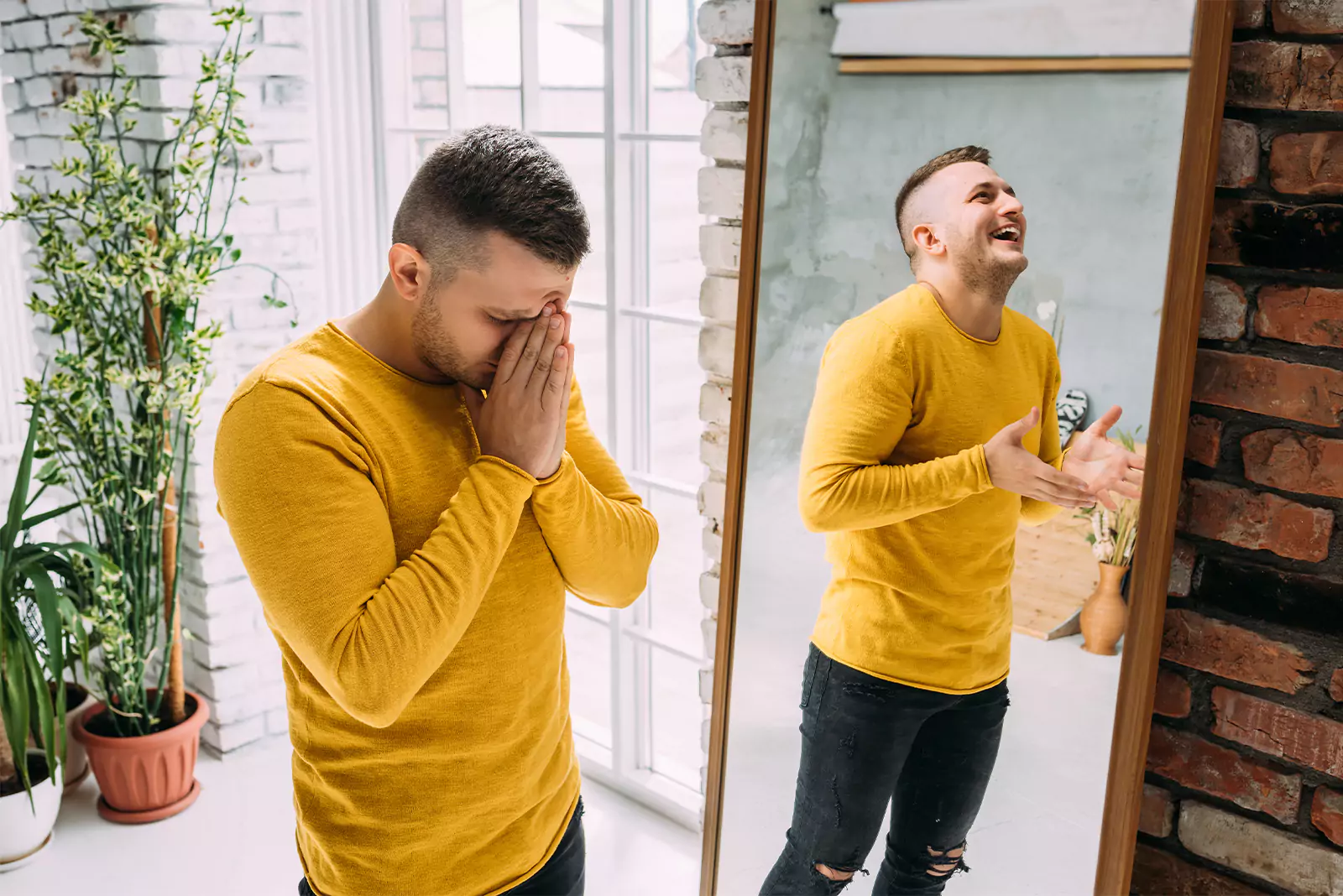
Helping You Find Balance Beyond Mood Swings
Bipolar disorder is more than just shifting moods. It is a serious mental health condition that causes extreme emotional highs (mania or hypomania) and lows (depression) that can interfere with daily life, relationships, and personal goals. At Calida Rehab, we offer specialized and compassionate care for individuals living with bipolar disorder. Our goal is to help you find lasting emotional stability, rebuild your confidence, and live a fulfilling life.
With dedicated treatment facilities in Pune, Mumbai, and Karjat, Calida Rehab provides structured, evidence-based, and empathetic care tailored to your needs.
Understanding Bipolar Disorder
Bipolar disorder is a chronic mental illness characterized by alternating episodes of mania and depression. These mood swings are more intense and disruptive than the regular ups and downs of life.
Types of Bipolar Disorder:
-
Bipolar I Disorder: Manic episodes that last at least 7 days or require hospitalization. Depressive episodes typically last 2 weeks or more.
-
Bipolar II Disorder: A pattern of depressive episodes and hypomanic episodes (less severe than full mania) without full-blown manic episodes.
-
Cyclothymic Disorder: Periods of hypomanic and depressive symptoms lasting for at least 2 years but not severe enough to meet the full criteria for bipolar I or II.
Symptoms of Bipolar Disorder
-
Unusually high energy or activity levels
-
Inflated self-esteem or grandiosity
-
Decreased need for sleep
-
Rapid speech and racing thoughts
-
Impulsiveness or reckless behavior
-
Easily distracted or irritable
-
Persistent sadness or emptiness
-
Fatigue or low-energy
-
Difficulty concentrating or making decisions
-
Changes in appetite or weight
-
Sleep disturbances
-
Feelings of guilt or hopelessness
-
Suicidal thoughts or behaviors
These symptoms can disrupt relationships, academic or professional life, and self-identity if left untreated.
WWhat Causes Bipolar Disorder?
The exact cause is unknown, but several factors contribute to the onset of bipolar disorder:
-
Genetics: A family history of bipolar disorder or depression increases the risk.
-
Brain structure and chemistry: Neuroimaging and studies suggest structural or functional brain changes in people with bipolar disorder.
-
Stress and trauma: Traumatic events, abuse, or prolonged stress can trigger episodes in vulnerable individuals
-
Substance abuse: Use of drugs or alcohol can worsen or mimic bipolar symptoms.
Our Holistic Approach to Bipolar Disorder Treatment
Calida Rehab offers a comprehensive and compassionate approach that combines medical, psychological, and lifestyle-based interventions. We don’t just focus on symptom control but on empowering individuals to understand and manage their condition long-term.
Accurate diagnosis is essential. Our psychiatrists and psychologists conduct detailed evaluations using the following:
-
Mental health interviews
-
Mood tracking
-
Psychological assessmentsles
-
Medical history and family background
Many individuals with bipolar disorder may initially be misdiagnosed as having depression or other conditions. Our team ensures a precise and thorough assessment.
Medication plays a crucial role in stabilizing moods. Our psychiatrists prescribe and monitor:
-
Mood stabilizers (like lithium)
-
Antipsychotic medications
-
Antidepressants (used cautiously to avoid triggering mania)
We ensure patients receive the right dose and help them manage side effects, dosage adherence, and long-term effectiveness.
Our therapists work closely with patients using:
Cognitive Behavioral Therapy (CBT):
-
Identifying and changing harmful thought patterns
-
Improving emotional regulation
-
Coping with daily stressors
Interpersonal and Social Rhythm Therapy (IPSRT):
-
Stabilizing daily routines (sleep, meals, social interactions)
-
Managing disruptions that can trigger mood episodes
Family-Focused Therapy:
-
Involving loved ones in treatment
-
Enhancing family communication and support
-
Preventing relapse through education and early warning signs
Group therapy helps individuals:
-
Connect with others facing similar challenges
-
Learn from shared experiences
-
Gain encouragement in a non-judgmental space
All sessions are led by trained psychologists.
-
Build healthy sleep habits
-
Maintain a balanced diet
-
Engage in regular physical activity
-
Practice relaxation techniques and mindfulness
Our wellness experts create personalized routines to reduce episode frequency and promote a balanced life.
-
Art therapy: Express suppressed emotions through creativity
-
Music therapy: Enhance mood and self-expression
-
Yoga and movement therapy: Build mind-body connection and inner calm
-
Aroma therapy: Reduce anxiety and uplift mood
What Makes Calida Rehab the Right Place for Bipolar Disorder Treatment?
Psychiatrists, psychologists, counselors, and wellness coaches collaborate to offer 360-degree care.
We treat every case as unique. Care plans are designed after extensive assessments.
Our Pune, Mumbai, and Karjat centers provide calm, structured spaces ideal for emotional recovery.
We involve families throughout the treatment process for long-term stability.
Our care focuses not just on treatment but on prevention, education, and continued support.
Take Control of Your Mental Health
Living with bipolar disorder can feel overwhelming, but with the right care, you can regain control. Calida Rehab is here to walk with you every step of the way.
Frequently Asked Questions – FAQs
Bipolar disorder is a chronic condition, but it can be effectively managed with therapy, medication, and lifestyle changes. Many people lead healthy, productive lives with the right support.
It varies per individual. Acute episodes may require weeks of residential care, while ongoing outpatient therapy and medication management may last for months or years.
Families help recognize early signs of relapse, provide emotional support, and participate in therapy sessions to improve home dynamics.
In severe episodes of mania or depression, hospitalization may be required. Calida Rehab offers safe, monitored, and respectful care during these periods.
They are supportive but not replacements for clinical care. At Calida Rehab, alternative therapies complement—not replace—scientific treatments.